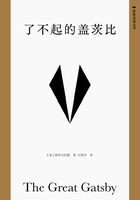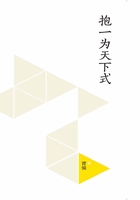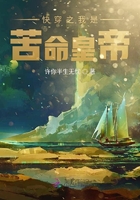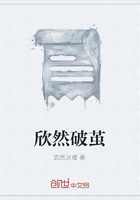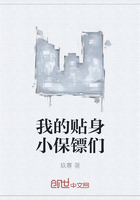The gypsy's corsage slipped through his hands like the skin of an eel. She bounded from one end of the tiny room to the other, stooped down, and raised herself again, with a little poniard in her hand, before Gringoire had even had time to see whence the poniard came; proud and angry, with swelling lips and inflated nostrils, her cheeks as red as an api apple, and her eyes darting lightnings.At the same time, the white goat placed itself in front of her, and presented to Gringoire a hostile front, bristling with two pretty horns, gilded and very sharp.All this took place in the twinkling of an eye.
The dragon-fly had turned into a wasp, and asked nothing better than to sting.
Our philosopher was speechless, and turned his astonished eyes from the goat to the young girl.“Holy Virgin!”he said at last, when surprise permitted him to speak, “here are two hearty dames!”
The gypsy broke the silence on her side.
“You must be a very bold knave!”
“Pardon, mademoiselle, ”said Gringoire, with a smile.“But why did you take me for your husband?”
“Should I have allowed you to be hanged?”
“So, ”said the poet, somewhat disappointed in his amorous hopes.“You had no other idea in marrying me than to save me from the gibbet?”
“And what other idea did you suppose that I had?”
Gringoire bit his lips.“Come, ”said he, “I am not yet so triumphant in Cupido, as I thought. But then, what was the good of breaking that poor jug?”
Meanwhile Esmeralda's dagger and the goat's horns were still upon the defensive.
“Mademoiselle Esmeralda, ”said the poet, “let us come to terms. I am not a clerk of the court, and I shall not go to law with you for thus carrying a dagger in Paris, in the teeth of the ordinances and prohibitions of M.the Provost.Nevertheless, you are not ignorant of the fact that N?el Lescrivain was condemned, a week ago, to pay ten Parisian sous, for having carried a cutlass.But this is no affair of mine, and I will come to the point.I swear to you, upon my share of Paradise, not to approach you without your leave and permission, but do give me some supper.”
The truth is, Gringoire was, like M. Despreaux, “not very voluptuous.”He did not belong to that chevalier and musketeer species, who take young girls by assault.In the matter of love, as in all other affairs, he willingly assented to temporizing and adjusting terms; and a good supper, and an amiable Tête-a-Tête appeared to him, especially when he was hungry, an excellent interlude between the prologue and the catastrophe of a love adventure.
The gypsy did not reply. She made her disdainful little grimace, drew up her head like a bird, then burst out laughing, and the tiny poniard disappeared as it had come, without Gringoire being able to see where the wasp concealed its sting.
A moment later, there stood upon the table a loaf of rye bread, a slice of bacon, some wrinkled apples and a jug of beer. Gringoire began to eat eagerly.One would have said, to hear the furious clashing of his iron fork and his earthenware plate, that all his love had turned to appetite.
The young girl seated opposite him, watched him in silence, visibly preoccupied with another thought, at which she smiled from time to time, while her soft hand caressed the intelligent head of the goat, gently pressed between her knees.
A candle of yellow wax illuminated this scene of voracity and revery.
Meanwhile, the first cravings of his stomach having been stilled, Gringoire felt some false shame at perceiving that nothing remained but one apple.
“You do not eat, Mademoiselle Esmeralda?”
She replied by a negative sign of the head, and her pensive glance fixed itself upon the vault of the ceiling.
“What the deuce is she thinking of?”thought Gringoire, staring at what she was gazing at; “'tis impossible that it can be that stone dwarf carved in the keystone of that arch, which thus absorbs her attention. What the deuce!I can bear the comparison!”
He raised his voice, “Mademoiselle!”
She seemed not to hear him.
He repeated, still more loudly, “Mademoiselle Esmeralda!”
Trouble wasted. The young girl's mind was elsewhere, and Gringoire's voice had not the power to recall it.Fortunately, the goat interfered.She began to pull her mistress gently by the sleeve.
“What dost thou want, Djali?”said the gypsy, hastily, as though suddenly awakened.
“She is hungry, ”said Gringoire, charmed to enter into conversation. Esmeralda began to crumble some bread, which Djali ate gracefully from the hollow of her hand.
Moreover, Gringoire did not give her time to resume her revery. He hazarded a delicate question.
So you don't want me for your husband?”
The young girl looked at him intently, and said, “No.”
“For your lover?”went on Gringoire.
She pouted, and replied, “No.”
“For your friend?”pursued Gringoire.
She gazed fixedly at him again, and said, after a momentary reflection.“Perhaps.”
This“perhaps, ”so dear to philosophers, emboldened Gringoire.
“Do you know what friendship is?”he asked.
“Yes, ”replied the gypsy; “it is to be brother and sister; two souls which touch without mingling, two fingers on one hand.”
“And love?”pursued Gringoire.
“Oh!love!”said she, and her voice trembled, and her eye beamed.“That is to be two and to be but one. A man and a woman mingled into one angel.It is heaven.”
The street dancer had a beauty as she spoke thus, that struck Gringoire singularly, and seemed to him in perfect keeping with the almost oriental exaltation of her words. Her pure, red lips half smiled; her serene and candid brow became troubled, at intervals, under her thoughts, like a mirror under the breath; and from beneath her long, drooping, black eyelashes, there escaped a sort of ineffable light, which gave to her profile that ideal serenity which Raphael found at the mystic point of intersection of virginity, maternity, and divinity.
Nevertheless, Gringoire continued, —
“What must one be then, in order to please you?”
“A man.”
“And I—”said he, “what, then, am I?”
“A man has a hemlet on his head, a sword in his hand, and golden spurs on his heels.”
“Good, ”said Gringoire, “without a horse, no man. Do you love any one?”
“As a lover?”
“Yes.”
She remained thoughtful for a moment, then said with a peculiar expression:“That I shall know soon.”
“Why not this evening?”resumed the poet tenderly.“Why not me?”
She cast a grave glance upon him and said, —
“I can never love a man who cannot protect me.”
Gringoire colored, and took the hint. It was evident that the young girl was alluding to the slight assistance which he had rendered her in the critical situation in which she had found herself two hours previously.This memory, effaced by his own adventures of the evening, now recurred to him.He smote his brow.
“By the way, mademoiselle, I ought to have begun there. Pardon my foolish absence of mind.How did you contrive to escape from the claws of Quasimodo?”
This question made the gypsy shudder.
“Oh!the horrible hunchback, ”said she, hiding her face in her hands. And she shuddered as though with violent cold.
“Horrible, in truth, ”said Gringoire, who clung to his idea; “but how did you manage to escape him?”
La Esmeralda smiled, sighed, and remained silent.
“Do you know why he followed you?”began Gringoire again, seeking to return to his question by a circuitous route.
“I don't know, ”said the young girl, and she added hastily, “but you were following me also, why were you following me?”
“In good faith, ”responded Gringoire, “I don't know either.”
Silence ensued. Gringoire slashed the table with his knife.The young girl smiled and seemed to be gazing through the wall at something.All at once she began to sing in a barely articulate voice, —
Quando las pintadas aves,
Mudas estan, y la tierra
She broke off abruptly, and began to caress Djali.
“That's a pretty animal of yours, ”said Gringoire.
“She is my sister, ”she answered.
“Why are you called 'la Esmeralda?'”asked the poet.
“I do not know.”
“But why?”
She drew from her bosom a sort of little oblong bag, suspended from her neck by a string of adrez arach beads. This bag exhaled a strong odor of camphor.It was covered with green silk, and bore in its centre a large piece of green glass, in imitation of an emerald.
“Perhaps it is because of this, ”said she.
Gringoire was on the point of taking the bag in his hand. She drew back.
“Don't touch it!It is an amulet. You would injure the charm or the charm would injure you.”
The poet's curiosity was more and more aroused.
“Who gave it to you?”
She laid one finger on her mouth and concealed the amulet in her bosom. He tried a few more questions, but she hardly replied.
“What is the meaning of the words, 'la Esmeralda?'”
“I don't know, ”said she.
“To what language do they belong?”
“They are Egyptian, I think.”
“I suspected as much, ”said Gringoire, “you are not a native of France?”
“I don't know.”
“Are your parents alive?”
She began to sing, to an ancient air, —
A bird was my mother;
My father, another;
Over the water I pass without ferry.
Over the water I pass without wherry;
A bird was my mother;
My father, another.
“Good, ”said Gringoire.“At what age did you come to France?”
“When I was very young.”
“And when to Paris?”
“Last year. At the moment when we were entering the papal gate I saw a reed warbler flit through the air, that was at the end of August; I said, it will be a hard winter.”
“So it was, ”said Gringoire, delighted at this beginning of a conversation.“I passed it in blowing my fingers. So you have the gift of prophecy?”
She retired into her laconics again.
“Is that man whom you call the Duke of Egypt, the chief of your tribe?”
“Yes.”
“But it was he who married us, ”remarked the poet timidly.
She made her customary pretty grimace.
“I don't even know your name.”
“My name?If you want it, here it is, —Pierre Gringoire.”
“I know a prettier one, ”said she.
“Naughty girl!”retorted the poet.“Never mind, you shall not provoke me.Wait, perhaps you will love me more when you know me better; and then, you have told me your story with so much confidence, that I owe you a little of mine. You must know, then, that my name is Pierre Gringoire, and that I am a son of the farmer of the notary's office of Gonesse.My father was hung by the Burgundians, and my mother disembowelled by the Picards, at the siege of Paris, twenty years ago.At six years of age, therefore, I was an orphan, without a sole to my foot except the pavements of Paris.I deo not know how I passed the interval from six to sixteen.A fruit dealer gave me a plum here, a baker flung me a crust there; in the evening I got myself taken up by the watch, who threw me into prison, and there I found a bundle of straw.All this did not prevent my growing up and growing thin, as you see.In the winter I warmed myself in the sun, under the porch of the H?tel de Sens, and I thought it very ridiculous that the fire on Saint John's Day was reserved for the dog days.At sixteen, I wished to choose a calling.I tried all in succession.I became a soldier; but I was not brave enough.I became a monk; but I was not sufficiently devout; and then I'm a bad hand at drinking.In despair, I became an apprentice of the woodcutters, but I was not strong enough; I had more of an inclination to become a schoolmaster; 'tis true that I did not know how to read, but that's no reason.I perceived at the end of a certain time, that I lacked something in every direction; and seeing that I was good for nothing, of my own free will I became a poet and rhymester.That is a trade which one can always adopt when one is a vagabond, and it's better than stealing, as some young brigands of my acquaintance advised me to do.One day I met by luck, Dom Claude Frollo, the reverend archdeacon of Notre-Dame.He took an interest in me, and it is to him that I to-day owe it that I am a veritable man of letters, who knows Latin from the de Officiis of Cicero to the mortuology of the Celestine Fathers, and a barbarian neither in scholastics, nor in politics, nor in rhythmics, that sophism of sophisms.I am the author of the Mystery which was presented to-day with great triumph and a great concourse of populace, in the grand hall of the Palais de Justice.I have also made a book which will contain six hundred pages, on the wonderful comet of 1465, which sent one man mad.I have enjoyed still other successes.Being somewhat of an artillery carpenter, I lent a hand to Jean Mangue's great bombard, which burst, as you know, on the day when it was tested, on the Pont de Charenton, and killed four and twenty curious spectators.You see that I am not a bad match in marriage.I know a great many sorts of very engaging tricks, which I will teach your goat; for example, to mimic the Bishop of Paris, that cursed Pharisee whose mill wheels splash passers-by the whole length of the Pont aux Meuniers.And then my mystery will bring me in a great deal of coined money, if they will only pay me.And finally, I am at your orders, I and my wits, and my science and my letters, ready to live with you, damsel, as it shall please you, chastely or joyously; husband and wife, if you see fit; brother and sister, if you think that better.”
Gringoire ceased, awaiting the effect of his harangue on the young girl. Her eyes were fixed on the ground.
“'Phoebus, '”she said in a low voice. Then, turning towards the poet, “'Phoebus', —what does that mean?”
Gringoire, without exactly understanding what the connection could be between his address and this question, was not sorry to display his erudition. Assuming an air of importance, he replied, —
“It is a Latin word which means 'sun.'”
“Sun!”she repeated.
“It is the name of a handsome archer, who was a god, ”added Gringoire.
“A god!”repeated the gypsy, and there was something pensive and passionate in her tone.
At that moment, one of her bracelets became unfastened and fell. Gringoire stooped quickly to pick it up; when he straightened up, the young girl and the goat had disappeared.He heard the sound of a bolt.It was a little door, communicating, no doubt, with a neighboring cell, which was being fastened on the outside.
“Has she left me a bed, at least?”said our philosopher.
He made the tour of his cell. There was no piece of furniture adapted to sleeping purposes, except a tolerably long wooden coffer; and its cover was carved, to boot; which afforded Gringoire, when he stretched himself out upon it, a sensation somewhat similar to that which Micromegas would feel if he were to lie down on the Alps.
“Come!”said he, adjusting himself as well as possible, “I must resign myself. But here's a strange nuptial night.'Tis a pity.There was something innocent and antediluvian about that broken crock, which quite pleased me.”

